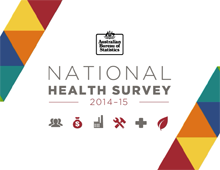
This area of study explores health and wellbeing and illness as complex, dynamic and subjective concepts. While the major focus is on the health of Australians, this area of study also emphasises that Australia’s health is not isolated from the rest of the world. Students inquire into the WHO’s prerequisites for health and wellbeing and reflect on both the universality of public health goals and the increasing influence of global conditions on Australians. Students develop their understanding of the indicators used to measure and evaluate health status, and the factors that contribute to variations between population groups in Australia.
Key knowledge
• concepts of health and wellbeing (including physical, social, emotional, mental and spiritual dimensions) and illness, and the dynamic and subjective nature of these concepts
• benefits of optimal health and wellbeing and its importance as a resource individually, nationally and globally
• prerequisites for health as determined by the WHO including peace, shelter, education, food, income, a stable eco-system, sustainable resources, social justice and equity
• indicators used to measure and understand health status: incidence, prevalence, morbidity, burden of disease, disability-adjusted life year (DALY), life expectancy, health-adjusted life expectancy (HALE), mortality (including maternal, infant and under 5) and self-assessed health status
• health status of Australians and the biological, sociocultural and environmental factors that contribute to variations between population groups including: – males and females – Indigenous and non-Indigenous – high and low socioeconomic status – those living within and outside of Australia’s major cities
• the contribution to Australia’s health status and burden of disease of smoking, alcohol, high body mass index, and dietary risks (under-consumption of vegetables, fruit and dairy foods; high intake of fat, salt and sugar; low intake of fibre and iron).

View the video on the Australian Bureau of Statistics National Health Survey 2014-2015.
Check out the ABS National Health Survey: First Results 2017 - 2018.
Health Reference Centre is an online database that provides a wealth of articles, videos and illustrations on timely health topics.
See Library Staff for Login Details.